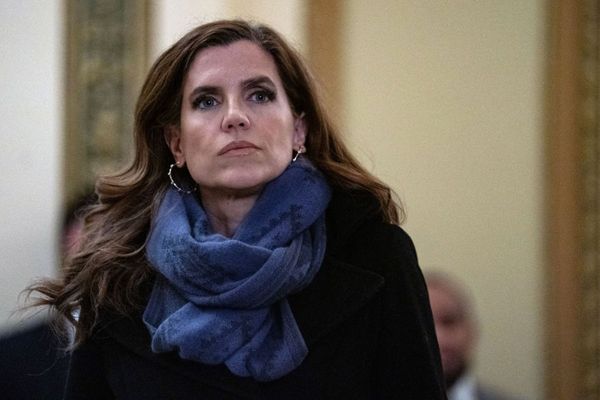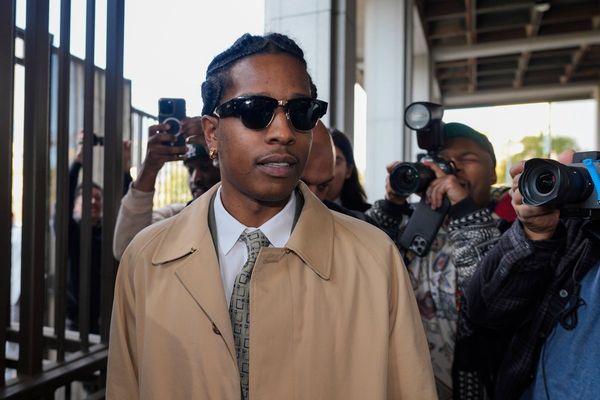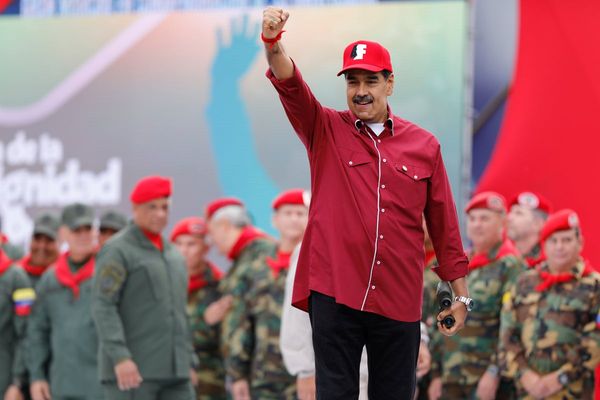
During the Vietnam War, Richard Nixon coined the “madman theory” of politics. The idea was to bully the Communist bloc into thinking he might do something crazy, such as using nuclear weapons, to enforce peace on American terms. Eventually America blinked and the humiliating US embassy airlift came to symbolise the fall of Saigon. To win, you have to be credible.
The North Vietnamese didn’t fall for the madman theory, any more than the West believes Vladimir Putin would deploy nuclear weapons against Ukraine. (Let’s hope we’re right about that.) With Donald Trump, we’re still at the guessing stage about the lethality of his threats to friends and foes – whether the “enemy within”, such as US federal employees, or US allies abroad, who are experiencing whiplash. Thankfully the stakes are smaller than “MAD” or mutually assured destruction. But Trump is accumulating wins because nobody knows how far he is bluffing.
In the words of the caustic New York Times columnist Gail Collins, “You know I’m really getting really tired of waking up in the morning and knowing it’s probably going to be a good day for Bad Guy.”
For Trump, the appearance of victory matters most. It’s in the character of “I, Trump”, the supreme leader, that he feels most powerful. By means of executive orders, the adoption of constitution-stretching emergency “wartime” powers and braggadocio, foreign leaders are feeling battered and American institutions cowed. The extent of Trump’s “wins” may turn out to be very different from the perception, but he is getting away with his bullying.
Yesterday America’s closest neighbours, Mexico and Canada, hurriedly bought themselves 30 days’ grace from the imposition of 25% tariffs on exports to the US. First, Mexican president Claudia Sheinbaum promised to send an extra 10,000 troops to the US border to help control drug trafficking, with a quid pro quo about stopping gun smuggling from the US.
Who really blinked first?
By late afternoon, Canada had also “folded” to Trump’s demands by offering to appoint a fentanyl tsar and other measures to stop cross-border crime. A trade war was averted. Yet fentanyl smuggling from Canada accounts for under 1% of the street supply in the US and much of the $900 million border plan had been previously announced (a tactic familiar to seasoned observers of British government practices).
Who really blinked first? Trump has pocketed these victories but it will be a while before we’ll see how much difference they make in practice. They could end up like his pledge in 2016 to “build a wall” and make Mexico pay for it (they never did). Those fragments of a wall turned out to be as useful as the ruins of Ozymandias. However, the bluster has its uses: Trump sets demands, others react. That’s the way he likes it.
White House press secretary Karoline Leavitt crowed, “Canada is bending the knee just like Mexico.” Certainly, the Canadians are feeling mightily relieved. Wiping the sweat off his brow, Brian Kingston, the president of the Canadian Vehicle Manufacturers Association, said, “We had been preparing for the worst possible outcome. I hope this results in a permanent decision.”
It may be that Trump was spooked by the markets into suspending his plans though he would never admit it. US news stations ran endless lists of the goods that could be affected by tariffs: fruit and vegetables, fuel and energy, cars and auto-parts. So much for Trump’s promise to bring inflation down on “day one” of his presidency. The Dow Jones industrial average sank by 1.4% in early trading before ending the day only slightly down after the deals were announced.
But nothing Trump says or does is permanent. He prefers to keep everybody in suspense. Far better, in his view, to leave Canada and Mexico in a state of nervous apprehension over temporary deals (along with trolling about turning Canada into the 51st state) rather than give anything away permanently. The same goes for the European Union, which has been threatened with 10% tariffs. Britain may be spared, but Trump’s not saying so definitively.
“I’m sure that one, I think that one can be worked out,” Trump teased on Sunday, just as Keir Starmer was heading for Brussels. His statement was a huge relief to the British treasury. But Trump was merely squeezing the prime minister at the optimal moment for sowing mistrust and confusion between Britain and the EU, while leaving us hanging. His final intentions are unclear.
There is something obscene about the richest man in the world stopping payments to some of the poorest people on earth
So far, China hasn’t buckled. President Xi is threatening to impose counter-tariffs of up to 15% on select US imports, but we don’t know whether that’s a negotiating gambit. In a rare outbreak of honesty, Trump admitted last weekend that his beloved tariffs could have a negative impact on American consumers. “Will there be some pain? Yes, maybe (and maybe not!), he posted on Truth Social. “But we will make America great again and it will all be worth the price that must be paid.”
Trump enjoys inflicting pain on his domestic enemies, but not as much as Elon Musk, the “first buddy” and head of DOGE (the department of government efficiency). He has been rampaging through federal offices with his geek squad of unvetted, under-25 year-olds. They have been prying into Treasury spending records and seizing control of computers at the Office of Personnel Management, which contain sensitive personal data on millions of civil servants.
Musk has also moved to shut down USAID, the international development agency, boasting on X, “We spent the weekend feeding USAID into the wood chipper”. There is something obscene about the richest man in the world stopping payments to some of the poorest people on earth – to disastrous immediate effect. But nobody knows if the suspension of funds will be permanent, or whether at least some aid will reappear under the auspices of the state department.
“He’s a big cost-cutter. Sometimes we won’t agree with it,” Trump has said, keeping his options open on Musk’s efforts. “It will not go where he wants to go. But he’s doing a great job.”
Allowing Musk to bring a chainsaw to the government is not only gratifying Trump. Dmitry Medvedev, the former Russian president, has praised shuttering USAID as a “smart move”, while his overlord, Putin, claimed contemptuously that “Europe’s elites” – he means US allies – “will all be at the master’s heel and wagging their tails nicely”.
Perhaps so, but the Russians won’t be happy with Trump’s latest proposal to keep supplying aid to Ukraine in exchange for access to rare earth minerals. Ukraine is willing to cut a deal on this. Is Madman Trump crazy like a fox or going to bring destruction in his wake? At this point, we can only guess.
Sarah Baxter is director of the Marie Colvin Center for International Reporting and a contributing editor of the Standard







